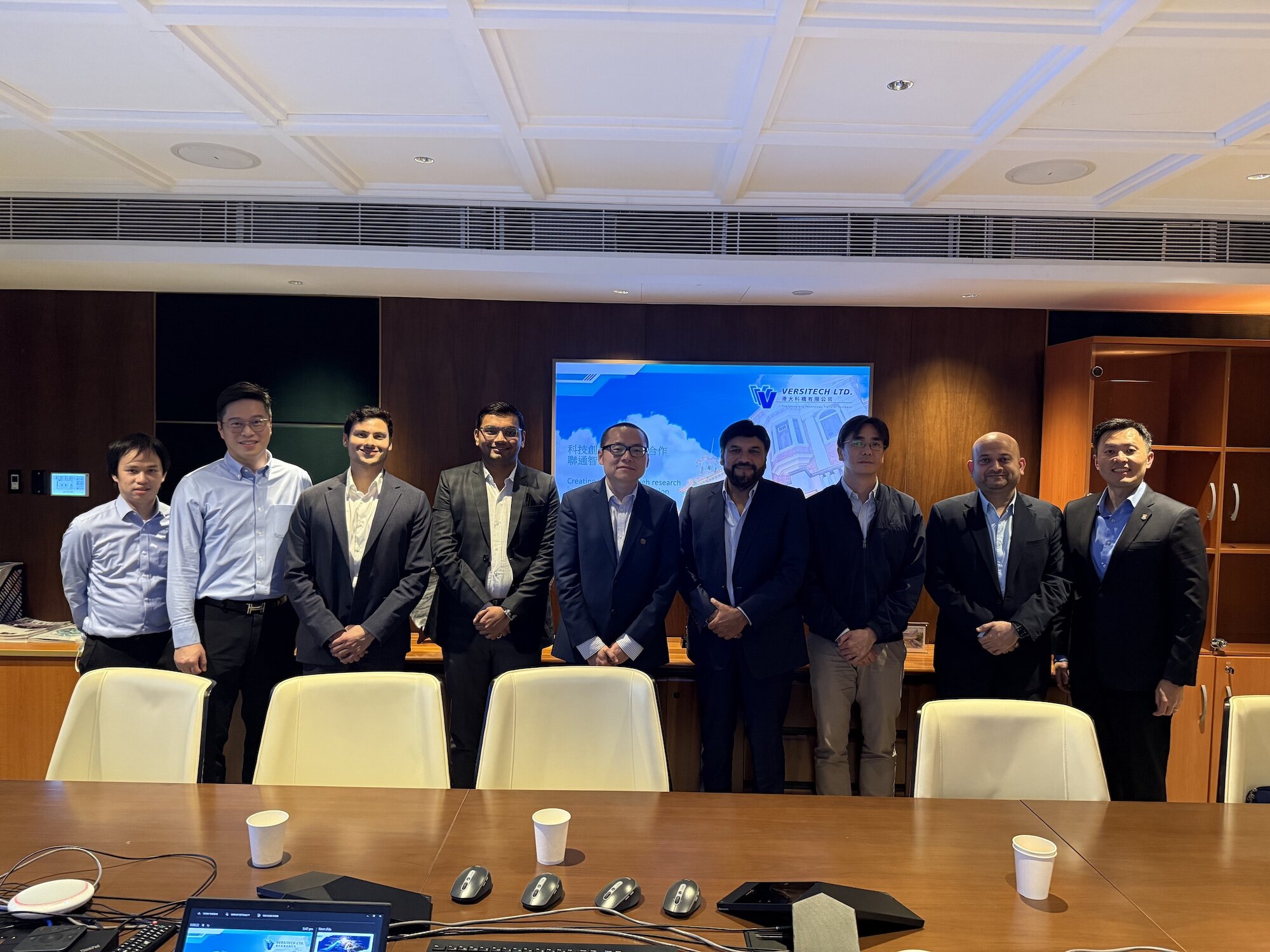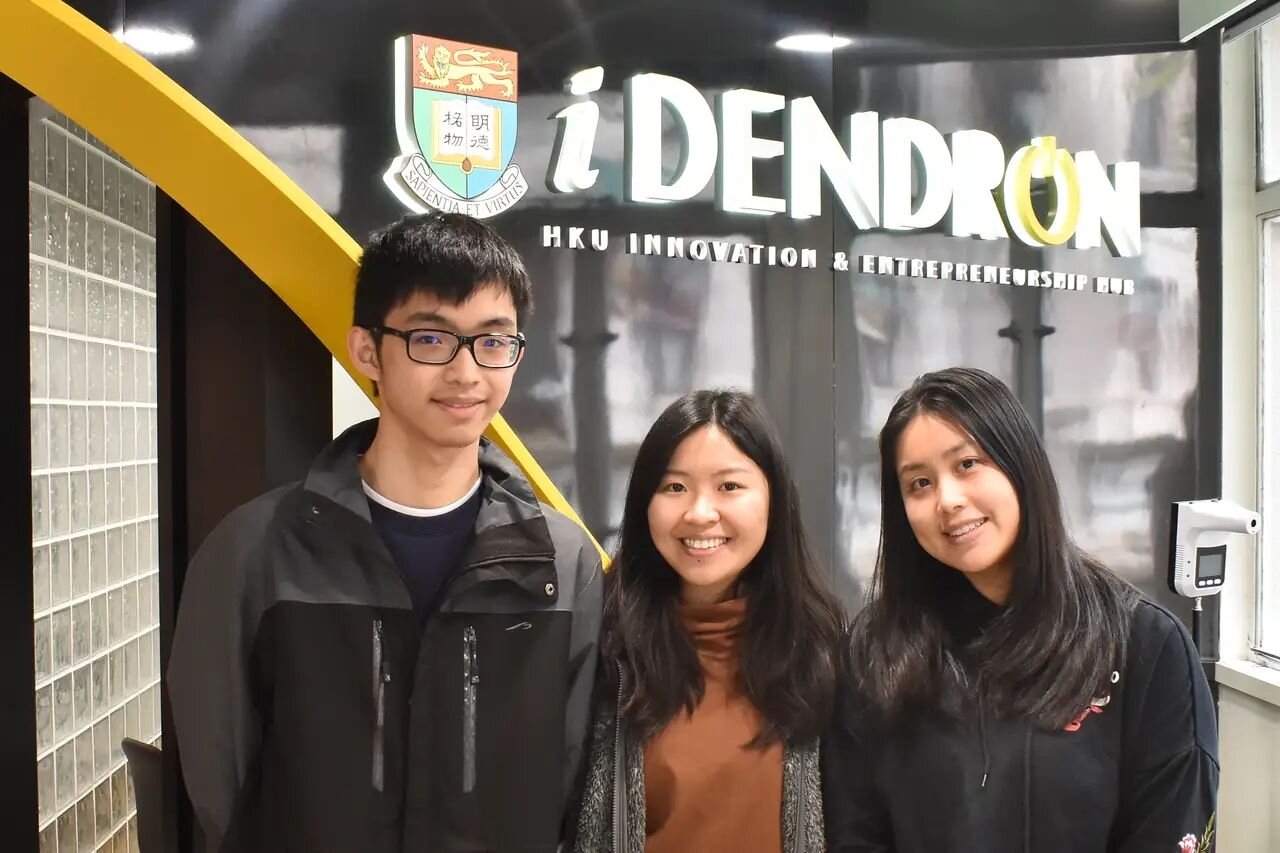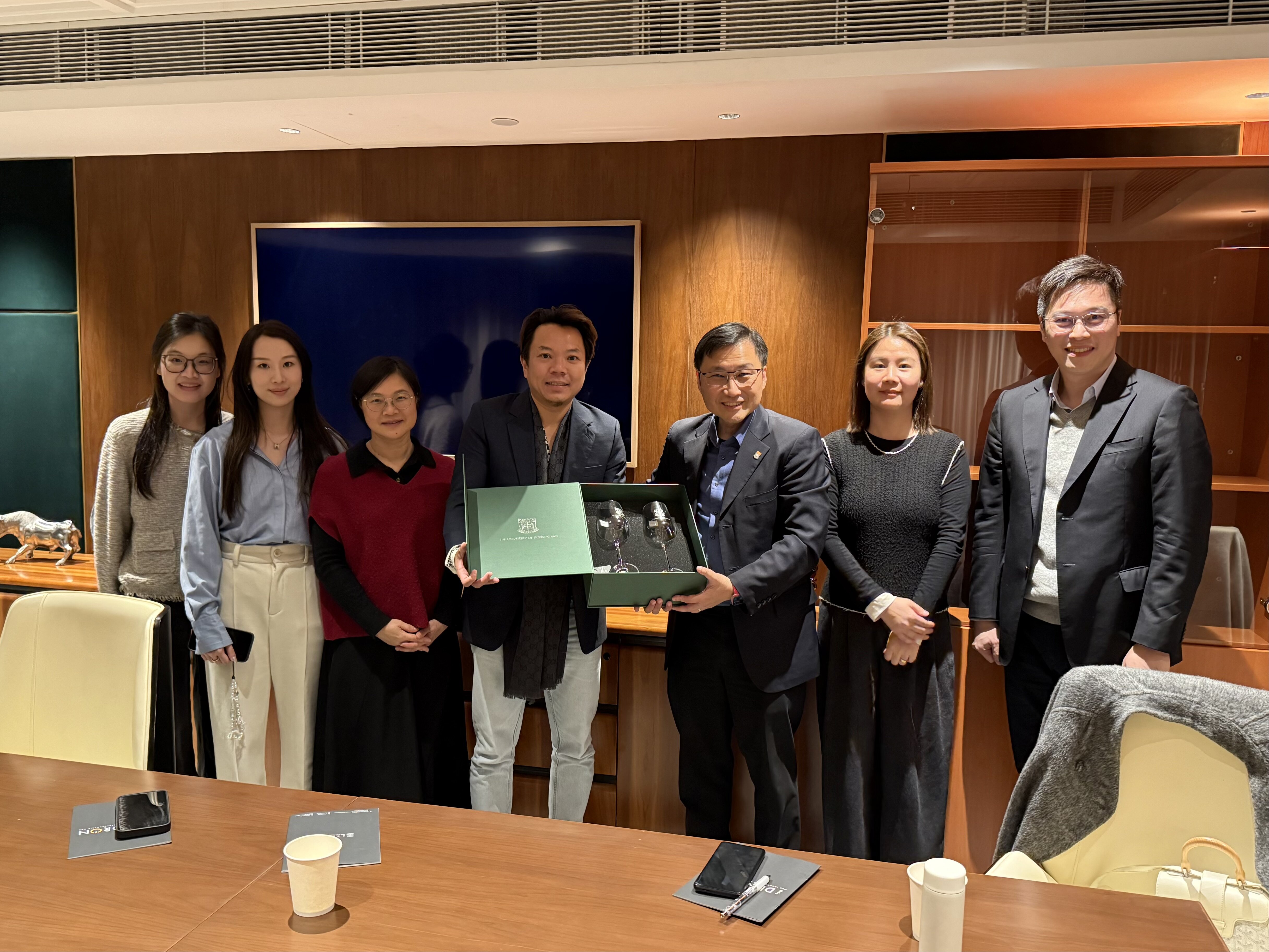HKU IMPACT (Jan 2025)
.jpg)
Professor Stephanie Ma: A New Era in Research and Innovation
.jpg)
The University is excited to announce the recent appointment of Prof Stephanie Ma as Associate Vice-President (Research and Innovation), effective from 1 December 2024. Prof Ma, who holds the esteemed position of Jimmy and Emily Tang Professor in Molecular Genetics within the School of Biomedical Sciences at the HKU Li Ka Shing Faculty of Medicine, brings a wealth of expertise in cancer and stem cell biology research and science outreach to her new role.
A Proven Track Record
Prof Ma’s impressive academic contributions have garnered her numerous international accolades, including the Croucher Senior Research Fellowship, RGC Research Fellow Award and the Alumni Builder Award from her alma mater University of British Columbia. As a Founding Member and current Vice-President of the Hong Kong Young Academy of Sciences, she stands out not only for her research excellence, but also for her leadership within the scientific community. She was the immediate past Assistant Dean (Innovation and Technology Transfer) in the Li Ka Shing Faculty of Medicine, Associate Director of the Knowledge Exchange Office and holds several directorial positions including member of the Board of Directors at the Hong Kong Science and Technology Park and most recently as a member of the Advisory Board at Hong Kong Life Sciences Society (HKLSS).
Vision for Innovation
In her new capacity, Prof Ma aims to advance the University’s innovation and technology transfer initiatives. She has articulated her commitment to fostering a culture of innovation, knowledge transfer and entrepreneurship. "I think it is important to think about what more can be done beyond publications and grants. How can we translate research findings into real-world benefits for patients or real-world industry solutions and social innovations?"
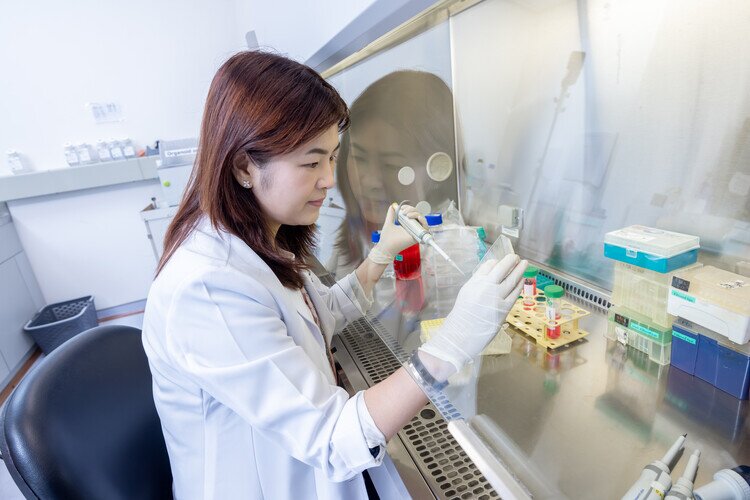
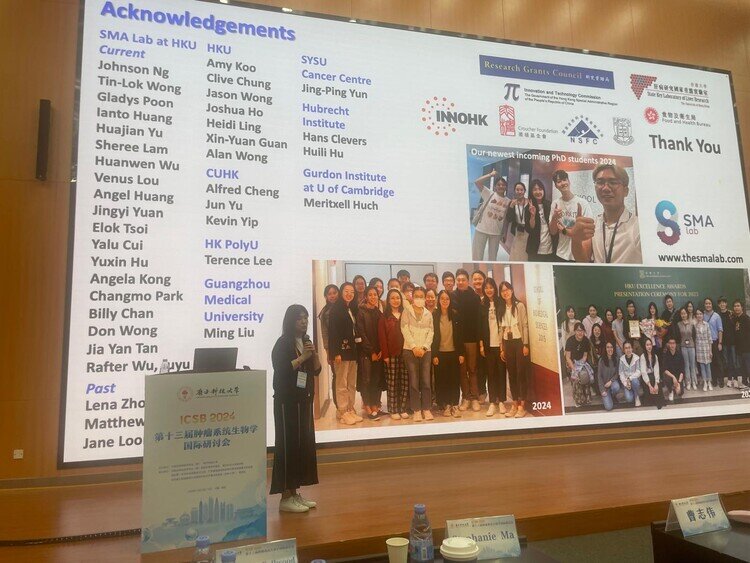
This sentiment reflects her belief in the significance of making an impact through scientific research. Prof Ma plans to strengthen cooperation among various stakeholders and create synergies within and beyond the university. "We need to bridge the gap between academia and the translational aspects of our work; and take our ideas and inventions from lab to life," she noted during a recent conversation.
Promoting Interdisciplinary Collaboration
Prof Ma highlights the remarkable potential of interdisciplinary collaboration in driving research and innovation. She states, "Collaboration across disciplines is essential for fostering innovation," emphasising the importance of connecting different fields to develop practical solutions for complex challenges.
Encouraging partnerships among researchers in diverse areas such as biomedical sciences, engineering, business, and medicine can unlock new opportunities and advancements that address pressing societal issues. A vibrant startup ecosystem thrives when skilled scientists collaborate with professionals with expertise in investment, business, marketing, and entrepreneurship. For instance, partnerships between engineers, biomedical scientists, and clinicians can generate innovative strategies to tackle health challenges, showcasing the powerful outcomes of teamwork across various domains.
To further promote collaborative efforts, several constructive initiatives can be introduced. Organising engaging innovation workshops and interactive seminars that bring together faculty and students from various academic disciplines can create vibrant platforms for brainstorming and developing interdisciplinary projects. Such events would encourage participants to share ideas and foster a culture of creativity and collaboration. Additionally, implementing cross-departmental mentorship programmes could provide junior researchers with valuable opportunities to work alongside experienced faculty from different fields. This mentorship would enhance the exchange of diverse perspectives and the sharing of specialised expertise, ultimately enriching the overall learning and research experience.
Breaking down silos between departments and faculties is essential for nurturing a more dynamic and innovative research environment with practical applications. Prof Ma asserts that "encouraging fellow researchers and students to explore cross-disciplinary learning will cultivate an open mindset, allowing them to integrate new knowledge." This approach not only enhances academic growth but also equips faculty and students with the skills necessary to tackle real-world challenges. By prioritising and fostering interdisciplinary collaboration, a robust framework for innovation can be created, ultimately benefiting society as a whole.
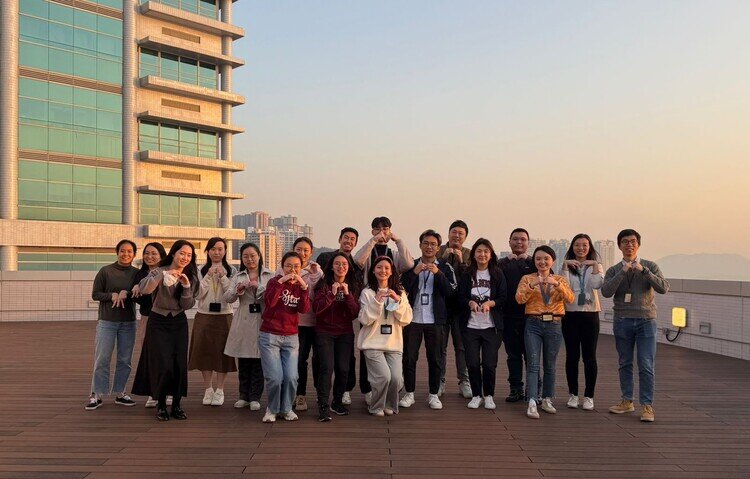
Advice for Colleagues and Students
In light of her new role, Prof Ma encourages her peers in academia to adopt a broader perspective on their research impact. "It is essential to think beyond traditional metrics like publications and grants," she advises. "Consider how your work can benefit society and engage in knowledge exchange." She advocates for the integration of innovation into academic pursuits, urging colleagues to explore how their research can lead to practical applications.
She also emphasises the importance of mentorship and collaboration: "Support your junior colleagues, and do not hesitate to collaborate with others outside your discipline. Innovation often arises from unexpected partnerships."
To the HKU students, Prof Ma offers a message of exploration and openness. "Don’t limit yourself to your field of study. Explore cross-disciplinary opportunities, engage with different subjects, and keep an open mind," she advises. She believes that the skills learned in diverse fields can enhance problem-solving and creativity.
Additionally, she encourages students to consider entrepreneurial ventures. "If you have an idea, pursue it. Seek support from resources available at the University, and don’t be afraid to take risks. The future of innovation is bright, and you have the potential to be a part of it."
Supporting Innovation and Technology Transfer
As the AVP of Research and Innovation, Prof Ma will focus on building robust support systems for innovation and technology transfer. She aims to enhance the nurturing of talent in these areas, ensuring that innovative ideas can be effectively realised and brought to market. "The establishment of the Techno-Entrepreneurship Core (TEC) in 2022 is a significant step in training faculty and students in entrepreneurial skills," citing an example of the need to create a vibrant innovation ecosystem.
With her extensive experience and innovative vision, Prof Ma’s leadership goes beyond merely advancing academic goals. She is dedicated to creating meaningful connections between cutting-edge research and real-world solutions. Prof Ma aims to establish a strong support system that empowers both staff and students in innovation and technology initiatives.
She envisions developing a dynamic network of partners, including potential investors, venture builders, government agencies, academics, and entrepreneurial advisors. By emphasising the importance of effective communication and outreach, her ultimate goal is to ensure that the University’s groundbreaking innovations and success stories reach and impact the wider public, showcasing HKU as a leader in shaping a better future.
Partnerships
 Partnership Agreement Signing Ceremony 2 copy.jpg)
The University of Hong Kong (HKU) Entrepreneurship Engine Fund (EEF) Partnership Agreement Signing Ceremony was held on 18 December 2024, marking the beginning of the first round of partner funds under the EEF. Three partners—CASStar, Innoangel Fund (英诺天使基金), and Beyond Ventures (海闊天空創投) —collectively pledged HK$370 million to invest in HKU-affiliated start-ups.
The ceremony was graced by Prof Xiang Zhang, President and Vice-Chancellor; Mrs Margaret M.Y. Leung Ko, Treasurer and Chairman of the Finance Committee, and Prof Max Shen, Vice-President and Pro-Vice-Chancellor (Research), who witnessed this significant occasion, among other distinguished partners and guests.
The EEF partners are committed to actively supporting the university's innovation and entrepreneurship initiatives through mentorship and financial backing. These early-stage investors will offer valuable expertise in commercialising academic research outcomes and fostering connections between entrepreneurs and industries, both locally and internationally.
The EEF is set to deliver key benefits to HKU, including:
- Support for Start-ups: Providing vital financial backing to nurture seed and early-stage deep-tech start-ups
- Access to Expertise: Enhancing mentorship and resource-sharing for emerging entrepreneurs through partnerships with leading investors
- Access to Expertise: Driving transformative solutions by connecting academic excellence with entrepreneurial vision.
The EEF initiative is expected to open doors for high-potential start-ups, creating a vibrant ecosystem that fosters groundbreaking solutions and impactful research. As HKU continues to attract world-class scholars and emerging entrepreneurs, the university is poised to play a pivotal role in the Greater Bay Area’s rise as a global innovation hub.
For more information about the Entrepreneurship Engine Fund and HKU's innovation initiatives, please contact:
Patrick Chen HKU, Techno-Entrepreneurship Core, Senior Manager (patrick.chen@hku.hk) or visit https://tec.hku.hk/entrepreneurship-engine-fund/.
External Opportunities
Event Highlights



 2025.jpg)
